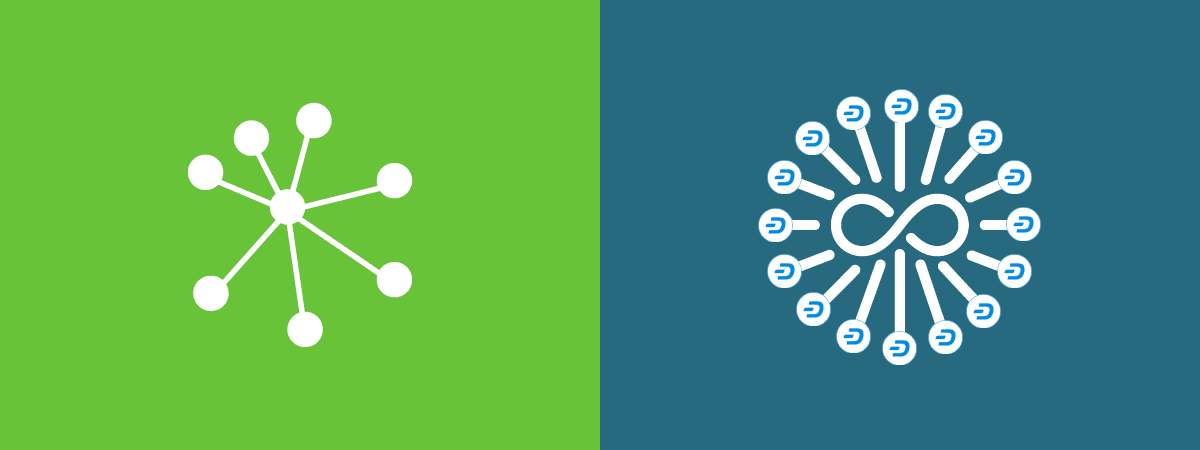A critical feature of digital currencies is their decentralization. Control of digital currency is divided between computers and networks, not through a single institution such as a government or central bank. In many cases, virtual currencies use this decentralized status to provide privacy & security unavailable in traditional currencies. Put another way, a decentralized autonomous organization (DAO) is an entity with no central leadership. Decisions are made by a community organized around a specific set of rules enforced on a blockchain. Think of DAOs as an internet business that is collectively owned and managed by its members. A DAO’s code should be 100% transparent and verifiable by anyone.
Traditional organizations typically have a hierarchy. For example, a board of directors and upper management define the structure and have the power to make changes. Conversely, DAOs aren’t governed by one person or entity. The governance of a DAO is coded in the blockchain and cannot be changed unless voted upon by the DAO’s members.
Decentralized autonomous organizations (DAOs)
- Member-owned communities without centralized leadership.
- A safer way to collaborate with unknown internet partners.
- A safer vehicle to commit funds to a specific cause.
DAOs open new opportunities for global collaboration and coordination.
Traditional Organization |
DAOs |
|---|---|
| Centralized and hierarchical | Decentralized and democratized |
| Changes can be decided by a person or central entity | Voting required by members for changes to the DAO |
| Activity is often private and not publicly accessible | Activity is transparent and publicly available |
What Makes Dash’s DAO Different
From their core, DAOs function based on money. As part of that, digital currencies need to manage the blockchain — people like miners and stakers. In 2015, Dash developer Evan Duffield recognized the need to compensate each supporting role. Dash’s more sophisticated model of a DAO ensued.
As we outlined before, Dash payouts are split three ways. One part goes to Dash miners (currently 45.4% of the non-treasury reward, or 40.86% of the total reward)) , one part goes to its Dash masternode operators (current 54.6%, or 49.14%), and ten percent of the total reward goes to the Dash treasury. The treasury then enables the Dash community to hire its own developers, marketers, or administrators. Dash can hire anyone the network chooses, with a simple vote to earmark money from the treasury. Other allocations have been used to purchase development hardware, build blockchain alliances, and sponsor conferences.
As a perk for supporting the Dash network, in addition to block rewards, Masternodes get the privilege of voting on proposals. Masternode owners essentially determine who the network hires and what they do. Remember, Dash masternode owners must stake 1000 Dash, so they have “skin in the game” and want the platform to succeed.
Inner Workings of the Dash DAO
As you would expect with any complex system like Dash, it relies on some subsystems to keep things running smoothly.
Masternode Owners (MNOs)
Dash masternodes reduce transaction time and keep the Dash network performing safely, privately, and efficiently. The Proof of Stake of 1000 Dash that Masternode owners post earns them governance privileges, specifically with the treasury. The community proposes, debates, and refines ideas. Then the treasury is allocated by the MNOs, who vote on proposals (that include budgets from the treasury). The DAO includes one vote per masternode. An approved proposal, which can impact anything from marketing to blockchain features, is then funded and enabled.
Dash Core Group (DCG)
Dash Core Group, Inc. is one of the organizations that work for the Dash Network. DCG is funded directly from the blockchain. It is essentially a blockchain and software development company, responsible for the development of Dash cryptocurrency protocol and open-source products, including a variety of wallets and a software development platform.
Dash Trust Protectors (DTPs)
The Dash DAO Irrevocable Trust, formed in July 2017, ensures that the Dash Core Group (DCG) is held accountable to the Dash network. The trust essentially owns and controls all shares in the Dash Core Group, ensuring that DCG works in the best interests of the Dash network. Each year, the Dash masternode network elects six Trust Protectors.The Dash Trust Protectors provide oversight of DCG, including replacing members of the DCG Board of Directors. For greater transparency within the Dash community, the DTP publishes their meeting minutes each quarter.
Dash as a DAO
With the decentralized control mechanisms of Dash, it’s a good example of a decentralized autonomous organization. The community can generate ideas and that MNOs, who have put their money where their mouths are, can impact the future of Dash with their votes. Ideas are put forth, discussed, refined, and potentially implemented all the time. It results in a robust, thriving community, and a blockchain platform well positioned for today and the future.


Leave A Comment